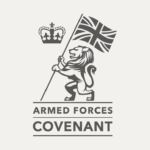A couple of years ago, someone nominated me for an award in The European CEO Magazine. I’d never heard of the magazine before and they asked me to submit my answers to five questions as part of their judging process.
I enjoy writing so it didn’t seem like much of a hardship. A few days after I submitted the answers, they told me I had won the category and it confirmed what I had suspected (the awards aren’t all that prestigious!)
However, my answers reflect what I believe and so I decided to publish them as a blog. Here are the questions and my responses:
- Which was more rewarding: Creating or maintaining a successful business?
- What would you have done differently?
- What traits do you see in yourself that have made you successful?
- What do you consider your greatest achievement?
- What is the most important asset when setting up a business?
Which was more rewarding: Creating or maintaining a successful business?
Somehow, I don’t like this question. There seems to be an implicit excitement in “creation” and an implicit dullness in “maintaining”.
More seriously, it makes me think of maintaining a status quo.
In my experience, there is no more certain route to demise than attempting to maintain the status quo. Our worlds change in extraordinary and unpredictable ways. Wanting the world to stay the same so we can maintain our stationary position within it, is like King Knut commanding the tide to halt its inexorable path.
So I took the liberty of rewording this question to “compare and contrast the creation and the subsequent development of a successful business”.
Of course it’s rewarding to create things. It can be fast and furious. There’s energy and it feels good. And nearly every business venture starts this way. However, the number that last the course, and transform themselves from frenetic bundles of activity into high performing enterprises that operate according to a deeply held philosophy, is very small.
For me, there is little that compares to the feeling of hope coming from the myriad of tiny or huge triumphs that light our way. Of course mistakes are made. Of course things go wrong. But they’re just opportunities to get stronger.
So to make sure I’ve answered the question clearly, I’ve found the personal payoff from developing businesses to be far greater than the transient high delivered by creation.
What would you have done differently?
In the time since I’ve been with Objectivity, we’ve had a long period of growth (turnover up by a factor of 10 in 10 years).
Fast growth is tough to manage and it creates many stress planes within the business. If your organisation cares about its people and its clients, then the pressure on everyone increases. From the most senior managers to the newest employees, there is more uncertainty, more risk, and more danger. In times of the most rapid growth, there is a dilution of your most experienced people as they need to help, coach and manage the new blood. It’s in addition to on-boarding new clients and learning how to work well together on that front.
Meeting new employees has always been really important to me and I run Values Workshops (90 minutes with groups of around 10 employees a time to help them understand the underlying philosophy). And further, our senior managers really recognise the dangers of very rapid expansion. They take many mitigating actions to help things go smoothly.
But, if I had my time again I’d try and allocate even more of my own time to each layer in our business during those high growth periods and I’d try to encourage a stronger support network for everyone.
What traits do you see in yourself that have made you successful?
I’ve always thought that if the person at the top is panicking, then clients and the people in the organisation would think the end was surely nigh. So, I try to be calm under pressure. In truth, that’s not extremely difficult as I’m not prone to gut wrenching dread with every twist or turn!
When things go wrong, I try not to look backwards for people to blame but just focus on the things we’re going to do next. Of course part of learning means we need to understand the “who, what, where, when and why” elements that led to the crisis but we should try and do it in the most positive way that we can.
I try to be really, really clear about the things that I believe, why I believe them and how I will try to mould our business to act in line with my beliefs. I don’t want anyone to be surprised by that. It’s made easier because the things I believe aren’t hateful. Well, I don’t think they are but you can judge for yourselves.
I believe that:
- we should create Win Win for our clients, our people, our shareholders and all our stakeholders
- our clients deserve the highest quality people to solve their hardest business problems and we should create effective strategies to attract, recruit develop and retain the most amazing team
- in business, trust is a precious thing that takes a lifetime to build and a moment to destroy. So truth is not a nice to have, it’s a mandatory requirement in all our actions (no matter how painful that might be)
- it’s best to strive for excellence in all that we do. It doesn’t mean gold plating everything but making it the best fit to do the job it’s intended for
- the future is impossible to predict and we should embrace that, learning how to thrive, not just survive in tumultuous times
What do you consider your greatest achievement?
I met my the girl of my dreams at the freshers disco on my first day of Uni.
Reader, I married her!
Thirty five years and five children later, I’m certain, that without qualification, our family life is my greatest achievement. And the greater credit goes to my wife, Janet. She puts up with a huge amount from us all!
In business, the things that make me most proud are the hard things. The things that take perseverance and don’t always go according to the plan. The things that test me in the dismal, desperate, dangerous days of winter.
My greatest business achievement has been building the team that made Objectivity into a Values Driven Business. Of course we make mistakes and we go wrong from time to time. But as a living breathing organism, our business cares about The Values and works hard to close the gaps.
What is the most important asset when setting up a business?
The most important asset is Flexibility.
And… perseverance.
And….. a supportive family
And…….. good friends
Or to paraphrase Monty Python, “Among the most important assets when setting up a business are: flexibility, perseverance etc. etc!”
But my first answer was flexibility and if I can choose only one, I’ll stick with that.
Over the years, I’ve spoken to many budding entrepreneurs and really often, they’re agonising over some assumptions in a spreadsheet of projections and the effect that tweaking them has on profit in year 3. It’s even possible that I’ve found myself in a similar situation! They (and I) were worrying about the wrong thing.
There’s a very old saying: “The first casualty of war is the plan”.
Of course every entrepreneur needs to have an idea of what the client wants, what they can sell, how much it will cost, how much they can charge, in what volumes and when.
If you haven’t got some credible understanding of all of those (with some “whys?” sprinkled liberally as well), then keep thinking. But as quickly as humanly possible (or quicker!) test your proposition on the market and get feedback. Take that feedback into your thinking and revisit all your ideas and assumptions.
Maybe the world is not yet ready for: “Five a Day Delicious Fruity Drone Deliveries!”
It’s reasonably likely (read almost certain!) that your original business idea won’t survive and that’s a good thing. Use the knowledge and experience to come up with v2 then v3 and keep going. Iterate again and again and again. Gradually the ideas will last longer and then sooner or later you’ll find an idea that survives the initial market test, the development into a product or service and the first delivery.
Then the long haul starts and if you agree with my answer above, the most rewarding part of the journey!
Now, where’s that drone catalogue? 😉


